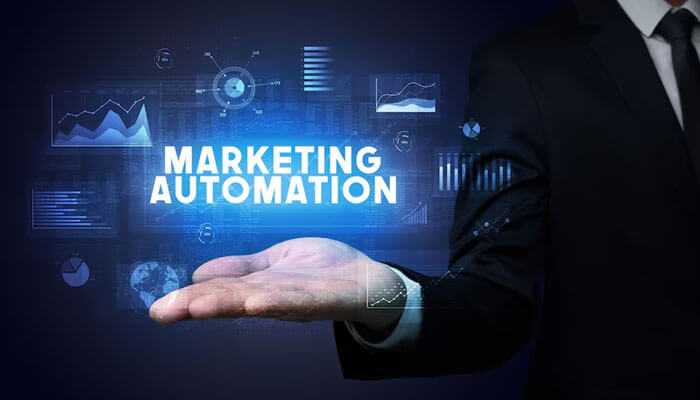Whether a business is small-scale or part of a large organization, opportunities must be sought to help a company cut unnecessary costs while being as efficient as possible. One concept that has leaped into the ranks of marketing essentials is marketing automation. But what are these automation services in marketing, and why should every marketer acknowledge them? In this article, we will look at what marketing automation services entail, the advantages of using these services, and some tips to enhance your marketing.
The Evolution of Marketing Automation Services
Initially, marketers employed simple techniques in promoting and selling their products and services, such as email lists and newsletters. Although in the beginning, the database marketing automation solutions were sufficient to meet the simple marketing needs of consumers, as communications increased in complexity and as data-driven marketing techniques started to replace the more traditional forms of marketing, the necessity for further sophistication of the automation solutions emerged.
Today, automation services are a more complex tool for sending emails. They connect with CRM systems, understand customer behavior, and offer complex analytics that assist marketers. New marketing automation has broken the barrier of offering better engagement and conversion, enabling more creativity in marketing campaigns.
Key Benefits of Marketing Automation Services
1. Efficiency and Time-Saving For Marketing Automation Services
Another critical benefit of entrusting marketing to automation services is the increased effectiveness in marketing activities. High-impact repetitive activities such as sending emails or placing updates on social media platforms. Through such automation, marketers get ample time to devote their efforts to critical projects. Not only does it do this, it also minimizes the chances of human interference, thus facilitating the running of campaigns.
2. Improved Customer Segmentation and Personalization
Customers expect marketers to address their wants and needs. With the help of automation tools, a customer’s data and the way they interact with your brand can be analyzed to categorize your audience into specific segments, thus enabling the delivery of content that is more probable to be embraced by each segment. This level of personalization results in increased people’s attention, loyalty to a company or brand, and improved conversion coefficients.
3. Lead Nurturing and Scoring
Not all leads are ready to make a purchase immediately. Marketing automation services help businesses nurture leads over time, guiding them through the sales funnel until they are prepared to convert. As with follow-ups, content marketing and the subsequent messages within a campaign can be curated based on a lead’s stage within the buyer’s journey. Lead scoring is also one of the automation tools’ highlights that allow for prioritizing leads based on their potential to convert to customers, and sales teams focus on the most promising clients.
4. Enhanced Data-Driven Decision-Making
Marketing has always thrived on data, and automation services allow you to collect, process, and use this data. Real-time analytics and reporting on results allow any marketer or advertising agency to closely monitor how the campaigns and other promotional strategies are faring and make sound decisions based on actual field results. It allows for increased efficiency of the campaigns, better utilization of resources, and a higher ROI.
5. Scalability
As your business expands its services, so do your marketing needs. Marketing automation services are meant to be compliant for companies; as a business grows, its automation services must also increase so that the marketing manager can handle bigger campaigns, targeting a wider population without wasting time. Whether you have a few regular subscribers or are coordinating multiple contacts to reach hundreds and thousands of recipients, automation tools will comfortably work out the difference and keep your marketing endeavors smooth.
Common Features of Marketing Automation Services
1. Email Marketing Automation
Email marketing is one of the most important types of digital marketing due to its effectiveness and the possibility of using automation tools to manage marketing campaigns. Tools such as autoresponders, newsletters, and A/B split help make your e-mails catchy for the clients.
2. Social Media Management
Currently, most people always have accounts on various social media platforms, which is why automation services make it easier to handle. What may be interesting for a user is that you can plan posts, browse through engagement, and even set autoresponders in one place.
3. Lead Management and Scoring
Lead management features are designed to provide prospects with tracking, nurturing, and prioritizing based on the prospects’ activity. Lead scoring involves ranking the leads to enable you to know which of the prospects are more likely to convert.
4. Customer Relationship Management (CRM) Integration
Most marketing automation software connects with CRM platforms to enhance customer interaction and data sharing. This means you will be harmonious with your marketing and sales departments so everyone is on the same page.
5. Analytics and Reporting For Marketing Automation Services
Marketing automation services are essential to achieving success. The technique, also known as data-driven marketing, offers features such as detailed analytics and reporting. These tools help you analyze specific indicators and control the effectiveness of campaigns, making the appropriate adjustments to the strategy.
6. Landing Page and Form Builders
The landing pages and the forms incorporated into the lead generation process must be highly converting. Most marketing automation systems have a drag-and-drop editor that helps businesses create and launch effective landing pages and forms.
Best Practices for Implementing Marketing Automation Services
1. Define Clear Goals For Marketing Automation Services
Before implementing marketing automation, you must define clear goals for what you want to achieve. Whether you want to increase lead generation, improve customer retention, or boost sales, having specific objectives will help guide your automation strategy and measure its success.
2. Start Small and Scale Up
If you’re new to marketing automation, it’s a good idea to start with a small, focused campaign and gradually scale up as you become more comfortable with the tools. This approach allows you to learn and refine your strategy without overwhelming your team or resources.
3. Continuously Optimize and Test
Marketing automation is not a set-it-and-forget-it solution. To maximize its effectiveness, continuously optimize your campaigns based on performance data. Use A/B testing to experiment with different content, subject lines, and timing, and use the results to refine your approach.
4. Align Sales and Marketing Teams
Marketing automation works best when sales and marketing teams are aligned. Ensure that both teams are on the same page regarding lead scoring, nurturing processes, and goals. Regular communication and collaboration between these teams will lead to a more effective strategy.
5. Prioritize Customer Experience
While automation can make marketing more efficient, it’s important not to lose sight of the customer experience. Ensure your automated communications are still personalized and relevant, and avoid overwhelming your audience with too many messages.
Conclusion
Whether you’re looking to save time, increase efficiency, or enhance your marketing effectiveness, automation can help you achieve your goals. However, successful implementation requires careful planning, continuous optimization, and a focus on the customer experience. As you consider integrating marketing automation into your strategy, remember that choosing the right marketing automation services is the key to success. If you are searching for a reliable company, consider partnering with TribalVision. Their competent team will help you implement tailored solutions that drive lead generation and nurture customer relationships.



